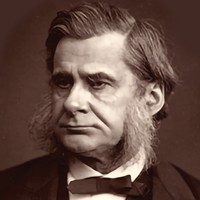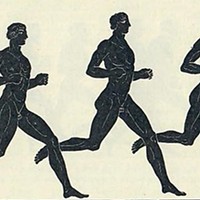
Photo via Borderland Magazine, public domai
"Decent to a fault" (per historian Charles Smith), Alfred Russel Wallace (1823-1913) was a scientist, social justice activist and polymath.
[
{
"name": "Top Stories Video Pair",
"insertPoint": "7",
"component": "17087298",
"parentWrapperClass": "fdn-ads-inline-content-block",
"requiredCountToDisplay": "1"
}
]
July 1 should be the day on which we celebrate the theory of evolution. That's when, in 1858, this revolutionary idea was presented to the world — at least to the august Linnean Society of London — in the form of writings by Charles Darwin and a paper by Alfred Russel Wallace. We don't because, by all accounts, the event passed by unnoticed. For instance, the following May, Linnean Society president Thomas Bell wrote that the previous year had "not been marked by any ... striking discoveries." So much for, in philosopher Daniel Dennet's words, "the single best idea anyone has ever had."
The presentation was prompted by a letter delivered to Darwin two weeks earlier from Wallace, then a relatively unknown naturalist who was midway through an eight-year exploration of the East Indies. In it, the younger Wallace laid out the core idea on which Darwin had been working for the previous 20 years: evolution of species by natural selection or, as it was soon dubbed, "survival of the fittest." Although Wallace and Darwin received equal billing at the time, Darwin is most associated with evolution, even by its shorthand name, "Darwinism." That's because although the 1858 presentation came and went with barely a ripple, Darwin's On the Origin of Species, published in December 1859, was the bombshell that shook the Victorian world. Yet of the two, it's Wallace who is in many ways the more interesting — and controversial — character.
Like Darwin, Wallace was a naturalist-explorer, first in the Amazon Basin and later in what was then known as the Malay Peninsula. Unlike Darwin, who was born into wealth, Wallace struggled financially for much of his life. (Darwin helped secure him a small pension from the U.K. government in 1881.) In contrast to Darwin-the-materialist, Wallace balked at the idea that evolution could account for higher human mental faculties. Wallace believed that while evolution was responsible for our physical makeup, consciousness must have a non-material origin — hence his passionate belief in spiritualism.
He opposed eugenics at a time when many prominent evolutionists were advocating it, writing, "Those who succeed in the race for wealth are by no means the best or the most intelligent." During his five years in the Amazon Basin, meeting untold numbers of Native people, he adopted the position (rare at the time) that "uncivilized" peoples are neither morally nor intellectually inferior to so-called "civilized" peoples. Closer to home, he lectured and wrote about the creation of a minimum wage standard and later advocated paying double-time rates for overtime. He was also an ardent supporter of women's suffrage.
He was a pacifist, writing, "all modern wars are dynastic; that they are caused by the ambition, the interests, the jealousies and the insatiable greed of power of their rulers, or of the great mercantile and financial classes which have power and influence over their rulers; and that the results of war are never good for the people, who yet bear all its burthens."
An early environmentalist, Wallace advocated protection of rural lands, parks and "greenbelts" (to prevent the physical growth of urban areas — it finally became U.K. law in 1955). In 1887, while on a lecture tour of the U.S., he visited California redwood groves and the Yosemite Valley with naturalist John Muir.
And he did much more, including: delineating between Asian and Australian fauna in the Indonesian archipelago (the "Wallace Line"); advocating paper money; theorizing about color vision; debunking Percival Lowell's mistaken notions about canals on Mars; and evaluating the possibility of life on other worlds. He authored 22 books and more than 500 scientific papers. In his 80s, he wrote or edited more than 4,000 pages of scientific papers. In short, he was (in a sobriquet originally applied to Thomas More) a man for all seasons.
Barry Evans ([email protected]) is fascinated by Wallace-the-scientist also being an ardent spiritualist, a fact that mightily bothered Wallace's decades-long friend, rationalist Charles Darwin.
Speaking of...
-

Darwin's Bulldog
Sep 28, 2023 -

To Run is Human
Aug 31, 2023 -

Every Breath You Take
Oct 22, 2020 - More »
more from the author
-
Doubting Shakespeare, Part 2: Problems
- May 2, 2024
-
Doubting Shakespeare, Part 1: Stratfordians vs. anti-Stratfordians
- Apr 25, 2024
-
A Brief History of Dildos
- Apr 11, 2024
- More »
Latest in Field Notes
Readers also liked…
-
Trouble on the Line: The Reality Part 2
- Nov 3, 2022
































